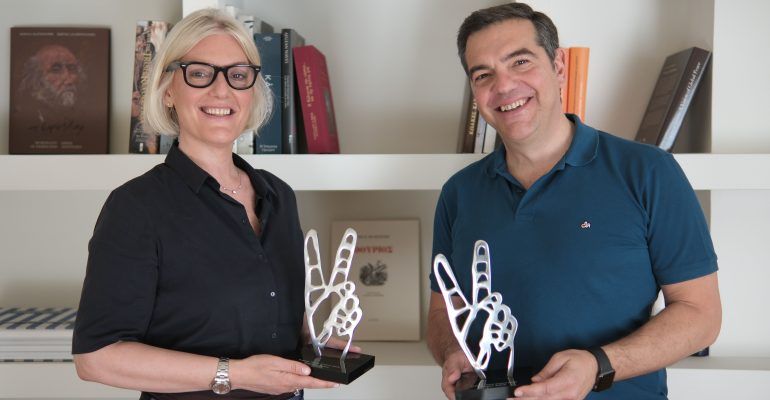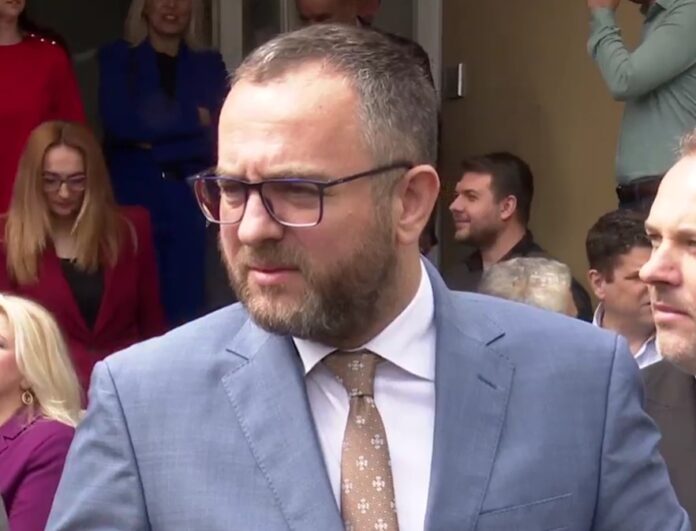Yemeni protest against stricter policy IND: « Why should I go back to a country where the bombs fall down? »
:format(webp)/s3/static.nrc.nl/wp-content/uploads/2024/09/23094939/data121968064-e83d8b.jpg)
On the square in front of the Hague court building, Hamed Al-Ragawi is with a flagpole and asks: « Do you want to see a video? » He has videos from bombing in Yemen, less than a few kilometers from his parental home. Al-Ragawi has also shown it to the Immigration and Naturalization Service (IND) for its asylum application in the Netherlands. « And do you know what the IND said? That nobody died in our house with this bombing, so that I don’t run a direct danger. What do they want to wait until we are all dead? »
Al-Ragawi’s application was rejected three weeks ago, and he is not the only one. About a hundred Yemenites were coming to The Hague on Saturday afternoon to demonstrate against the new Dutch admission policy. Where until the beginning of last year refugees from Yemen were almost automatically granted asylum because of the war in the country, the policy for Yemenites was then tightened. They must now prove that they are personal danger. And that has major consequences: most Yemenites no longer get asylum – while there is still plenty of fighting in their country.
The demonstration was organized this weekend because the Council of State is considering two rejections of Yemeni asylum seekers on Wednesday. The judgment of the highest administrative court is important for all Yemenites, says demonstration leader Mugahed Sarhan. « If the judge goes along with the story that Yemen is safe, we will all be bothered by that. »
Kidnapped diplomat
The idea that Yemenites can go back is being dismissed as ridiculous by the demonstrators on the square. « Sir, you explain to me, how can the Dutch say that Yemen is safe? » Asks Mohammed Hassani (30) in a white blouse, former fisherman from Yemen. « Recently, a diplomat from the Dutch embassy was abducted by the Houthis. If even Dutch embassy staff are not safe, what do you think they will deal with us? »
« You have to understand, » says a boy who stands next to him, « being the Houthis like ISIS. They grab you and kill you. » Everyone around him nods in agreement.
Read also
IND works with a radical new admission policy: « Asylum seeker must now show that he is in danger »
The last IND report, the ‘migration radar’, about the situation in Yemen is also not hopeful. A ceasefire is « not in sight », the conflict between the Houthis and Israel even seems to « escalate », air strikes are the order of the day. But the Yemeni refugees do not have the time. Not only has the policy changed for their country; The general working method of the IND was also tightened last year. As a result, asylum seekers have to do even more to prove that they are a refugee who needs protection.
Danger of return
Due to these changes, the Yemenites on the Hague square no longer get asylum, while they say they would be in danger on return. Like the 31-year-old Osamah Al Ashlaf, who applied for asylum, partly because he is threatened by the Houthis because of his father who works for the opponent. He was temporarily imprisoned by the Houthis in 2018. Yet the IND rejected him, partly because he could not prove that he was arrested for political reasons.
Ali Ateik, a 25-year-old boy in a brown jacket, could not convince the IND that he is in danger. In 2023 he came to the Netherlands. His family is threatened by the Houthis, he says, and his father was captured by the group. « But the IND maintains that it is safe enough for myself to go back. Because I am not my father. »
According to Ali Ateik, however, a return would mean « death. » « Yes, of course, they are looking for us. Especially after our demonstrations against the Houthis. They were also broadcast in Yemen. » That’s why ateik knows « very sure »: « I’m never going back. »
Hamed Al-Ragawi, from the bombing near his parental home, is also not planning now that his first application has been rejected. He works in a hamburger restaurant in Zaandam and follows a study in coding. « I started my life here, » says Al-Ragawi. « Why would I go back to a country without president, without a government, where the bombs fall down? »

/s3/static.nrc.nl/images/gn4/data133354271-8dc659.jpg)
:format(webp)/s3/static.nrc.nl/wp-content/uploads/2024/09/04085506/data120975205-8f5e99.jpg)
/s3/static.nrc.nl/images/gn4/data133355903-5bc084.jpg)



